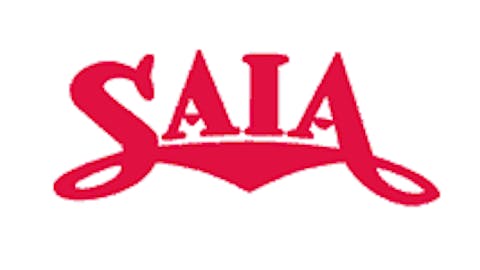Some investors and analysts believe that the U.S. stock markets are overvalued at the moment, as they are awaiting and preparing for a bearish run. They suggest that the ultra-low-interest-rate environment has pushed U.S. equities higher, so the end of this cheap money mode will put some weight on equities. But it might take a while until the U.S. markets experience a new serious pullback; the economy has been steadily growing, the labor market has been tightening, inflation has been picking up, and consumer confidence and consumption has been increasing. Nonetheless, some companies’ insiders have started to offload their holdings lately, which might serve as reason for concern among investors. Although corporate insiders can sell shares for numerous reasons unrelated to their companies’ future prospects, investors may become more cautious when seeing heavy insider selling activity. The Insider Monkey team investigated the inside sales that cropped up in our insider trading database, and pinned down three companies with noteworthy insider selling activity. This article will discuss those insider sales and the recent performance of the companies in question.
Prior to discussing the insider trading activity, let’s make you familiar with what Insider Monkey does besides providing high-quality articles. We track hedge funds and prominent investors because our research has shown that historically their stock picks delivered superior risk-adjusted returns. This is especially true in the small-cap space. The 50 most popular large-cap stocks among hedge funds had a monthly alpha of about 6 basis points per month between 1999 and 2012; however the 15 most popular small-cap stocks delivered a monthly alpha of 80 basis points during the same period. This means investors would have generated 10 percentage points of alpha per year simply by imitating hedge funds’ top 15 small-cap ideas. We have been tracking the performance of these stocks since the end of August 2012 in real time and these stocks beat the market by 53 percentage points (102% return vs. S&P 500’s 48.7% gain) over the last 38 months (see the details here).
Heartland Express Inc. (NASDAQ:HTLD) is one of the companies that registered a high volume of insider selling this week. Director Larry J. Gordon discarded 31,000 shares on Monday and 100,000 shares on Tuesday at prices between $17.03 and $17.34 per share, cutting his overall holding to 572,867 shares. The shares of the short-to-medium haul truckload carrier have lost nearly 35% so far this year, while their forward price-to-earnings ratio of 19.66 does not suggest too much upside in the upcoming year (the forward P/E ratio for the S&P 500 totals 17.35). The demand for freight services has been higher than industry capacity in recent years even though the demand has slightly weakened over the past few months. Heartland Express Inc. (NASDAQ:HTLD) and other companies in the industry have a hard time finding qualified drivers, as drivers’ availability has been impacted by numerous regulations. Fuel expenses, which accounted for roughly 17% of Heartland’s operating revenues, represent the company’s highest cost after salaries, wages and benefits to drivers and other employees; hence, the company has greatly benefited from lower diesel fuel prices in 2015. Nonetheless, Heartland Express reported operating revenues of $561.7 million for the first nine months of 2015, down from $668.4 million reported for the same period a year ago. This decrease was primarily attributable to a decrease in drivers. Meanwhile, its basic net income per share declined to $0.64 from $0.72 year-on-year. Ken Fisher’s Fisher Asset Management cut its position in Heartland Express Inc. (NASDAQ:HTLD) by 3% during the July-to-September period to 2.32 million shares.
Follow Heartland Express Inc (NASDAQ:HTLD)
Follow Heartland Express Inc (NASDAQ:HTLD)
Receive real-time insider trading and news alerts
Let’s head to the next page of this insider trading article, where we reveal the insider sales reported at USANA Health Sciences Inc. (NYSE:USNA) and Zendesk Inc. (NYSE:ZEN).
USANA Health Sciences Inc. (NYSE:USNA) had one of its top executives selling big this week. Co-Chief Executive Officer Dave Wentz reported selling 6,000 shares on Tuesday at prices that ranged from $130.00-to-$132.00 per share. After the recent sell-off, the co-CEO currently holds an ownership stake of 442,765 shares. The manufacturer of high-quality nutritional and personal care products has a customer base that is comprised of two groups of customers: associates and preferred customers. The former group comprises independent distributors of the company’s products, while the latter one purchases products solely for their personal use. The number of associates and preferred customers in the Asia Pacific region accounts for 78% of the overall customer base, so the company generates most of its revenues in this region. USANA Health’s net sales, for the nine months that ended October 3, totaled $685.91 million, up from $562.60 million reported for the same period of 2014. This increase was mainly driven by a 97.2% increase in local currency net sales in mainland China. The company’s stock trades at a trailing P/E ratio of 18.64, which is slightly below the average of 22.73 for the companies contained within the S&P 500 benchmark. Jim Simons’ Renaissance Technologies reported owning 836,883 shares of USANA Health Sciences Inc. (NYSE:USNA) via its latest quarterly 13F.
Follow Usana Health Sciences Inc (NYSE:USNA)
Follow Usana Health Sciences Inc (NYSE:USNA)
Receive real-time insider trading and news alerts
Zendesk Inc. (NYSE:ZEN) has seen numerous insiders sell stock so far this month, but most sales were made in connection to the exercise of stock options. Hence, we will only display the insider sales that were not conducted under trading plans and were not related to freshly-exercised stock options. Director Elizabeth A. Nelson offloaded 25,000 shares on Monday at a weighted average price of $26.09 and currently owns a stake of 80,429 shares. The software development company that offers a software-as-a-service customer service platform (including live chat software and analytics software) has experienced significant revenue growth lately. Zendesk reported revenue of $146.12 million for the nine months that ended September 30, up from $88.51 million reported a year ago. The company’s business has grown at a high pace and Zendesk’s management anticipates to invest more capital so as to drive long-term growth. The company’s sales and marketing team increased to 453 employees from 264 during the 12-month period ending in September 2015, and Zendesk plans to expand its direct sales force even further in an attempt to boost sales growth by targeting larger organizations. Most financial hubs that have coverage on the stock have great expectations about the company’s future growth prospects. Just recently, Pacific Crest Securities raised its price target on the software company to $35 from $30, citing multiple opportunities for growth. A number of 21 hedge funds from our database had stakes in the company at the end of the third quarter, accumulating 16.30% of its outstanding shares. Ken Griffin’s Citadel Advisors LLC holds a 1.81 million-share position in Zendesk Inc. (NYSE:ZEN) as of September 30.
Follow Zendesk Inc. (NYSE:ZEN)
Follow Zendesk Inc. (NYSE:ZEN)
Receive real-time insider trading and news alerts
Disclosure: None





